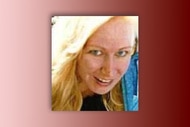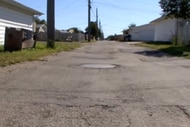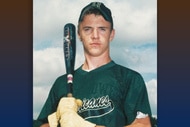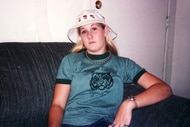FBI Offers $10K Reward for Information About Disappearance Of Missing Indigenous Woman Mary Johnson
Activists say Mary Davis is part of an epidemic among Indigenous women in North America who have gone missing or have been murdered, but their cases remain unsolved.

The last time anyone saw Mary Johnson was on Nov. 25, 2020. She was walking east on Firetrail Road on the Tulalip Reservation in Washington State.
Johnson was heading to a friend’s house but never arrived, according to the FBI. Two weeks later, on Dec. 9, she was reported missing by her estranged husband.
Now, the FBI is offering a $10,000 reward to anyone with information about Johnson’s disappearance. The FBI’s Seattle Field Office and the Tulalip Tribal Police Department are investigating her case.
On the day she disappeared, Johnson texted a friend at 1:52 pm. “I am almost to the church,” she wrote, according to the local news outlet HeraldNet.com. The friend was supposed to give Johnson a ride. Johnson’s husband had dropped her off at home the day before. Johnson told the friend that they were not getting along. She feared he was moving to California with their shared belongings, the HeraldNet reported.
Police said Johnson may have been taken to Oso, where she has family. But Tulalip Tribal Police Chris Sutter told KING-5 that he didn’t believe she made it to her final destination.
Johnson’s family is also searching for her and is concerned about her safety.
They placed a billboard on a local highway asking anyone with information about her disappearance to contact police.
Her sisters said they were unaware that she was even missing until her estranged husband notified police.
“He said she has been gone for a couple of weeks and that she is not normally gone that long,” Gerry Davis told KING-5.
“Now that she’s disappeared, we don’t know if she’s alive or dead. It would just be nice to have her back,” Davis told the station over the summer.
Johnson’s case is part of larger crisis across America, activists said. There are thousands of reports of missing Native Americans, but those cases are largely ignored. Activists blame racism for the problem.
"It's kind of heart-wrenching when we look at a white woman who goes missing and is able to get so much immediate attention," Lynnette Grey Bull, founder of Not Our Native Daughters," told NPR.
"It should be the same, if an African-American person goes missing, or a Hispanic person goes missing, a Native American ... we should have the same type of equal efforts that are being done in these cases.
Native Americans represent about 2 percent of Washington state’s population, but account for nearly 6 percent of active missing persons reports, according to Washington State Patrol.
A 2018 report by the Urban Indian Health Institute found that Washington had the second-highest number of missing and murdered Indigenous women and girls, behind New Mexico.
“You can talk to anybody who lives on a reservation and they know somebody who’s gone missing,” Sutter told KING-5. “Unfortunately, too many of them are abused, exploited and murdered.”
About 1,500 American Indian and Alaska Native missing persons have been reported missing, according to the National Crime Information Center, CNN reported Additionally, 2,700 homicide cases have been reported to the Uniform Crime Reporting Program.
The murder rate for Native American women on some reservations is more than 10 times the national average, according to the Justice Department.
Earlier this year, Interior Secretary Deb Haaland announced the creation of a new Missing and Murdered Unit within the Bureau of Indian Affairs to address the crisis.
"Violence against Indigenous peoples is a crisis that has been underfunded for decades," Haaland said in a statement. "Far too often, murders and missing persons cases in Indian country go unsolved and unaddressed, leaving families and communities devastated."
Haaland is the first Native American to service as a cabinet secretary.
“The new MMU unit will provide the resources and leadership to prioritize these cases and coordinate resources to hold people accountable, keep our communities safe, and provide closure for families,” Haaland said.



























